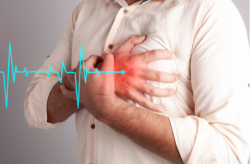Heart Disease
Heart disease refers to several conditions affecting your heart. Diseases under heart disease include blood vessel diseases, such as coronary artery disease, heart rhythm problems (arrhythmias), and congenital heart defects. “Heart disease” is often referred to in medical terms as “cardiovascular disease”. Cardiovascular disease generally refers to conditions in which narrowing or blocking of blood vessels increases the risk of heart attack, angina, or stroke. Other heart conditions affecting your heart muscle, valves, or heartbeat are also considered a form of heart disease.

Types of Heart Disease:
There are the following types of heart disease –
- Heart Attack
- Heart Failure
- Angina
- Coronary Artery Disease
- Irregular heartbeat
- Atherosclerosis
- Heart valve disease
- Hole in the heart
- Rheumatic heart disease
- Periphile artery disease
- Cardiomyopathy
- Cerebrovascular disease
Heart Disease Symptoms:
All diseases of the heart have all or one or more of the following symptoms in common:
- Heaviness
- Pressure
- Discomfort or pain in the chest.
- Recurrent pain in the upper body, such as in the arms, jaw, neck, back, or upper abdomen.
- Fatigue and weakness.
- Breathlessness
- The rapid increase in heartbeat
- Dizziness,
- Sweating and nausea.
- Anxiety.
- Coughing
If these symptoms of heart diseases do not improve and do not go away even after placing nitro-glycerin under the tongue, consult a physician’s doctor immediately.
Heart Disease Causes:
Cardiovascular Disease:
Cardiovascular disease can be used for various heart or blood vessel problems but is most often used for damage to your heart or blood vessels by atherosclerosis. This can be due to the following reasons –
- An Unhealthy Diet
- Not exercising
- Being overweight
- Smoking
Irregular Heartbeat:
- Congenital
- Heart Defects
- Coronary Artery Disease
- High Blood Pressure
- Sugar
- Smoking
- Excessive Use of Alcohol
- Heart valve disease
Congenital Heart Defect
Congenital heart defects usually develop when the baby is in the womb and his heart is developing or after a month of gestation and when the blood flow changes. Certain medical problems, medications, and genetic factors can play a role in causing such defects.
Heart Valve Disease:
There are many causes of damage to your heart valves. You can get it from birth or it can happen because of some condition.
- Rheumatic fever
- Infection (infectious endocarditis)
- Connective tissue disorders
Diagnosis of Heart Disease:
The tests that will be needed to diagnose heart disease depend on what your doctor thinks. Your doctor will do a physical exam and ask about your personal and family medical history before doing any tests. Apart from blood tests and chest X-rays, the following tests are done to diagnose heart disease
- ECG
- Holter Monitoring
- Echocardiogram
- Stress Test
- MRI
- CT-SCAN
Heart Disease Treatment:
The treatment of heart disease depends on its condition. For example, if you have a heart infection, you will probably be given antibiotics. In general, the following treatments are done for heart disease
- Life Style Changes
- Medicines
- Medical Surgery
